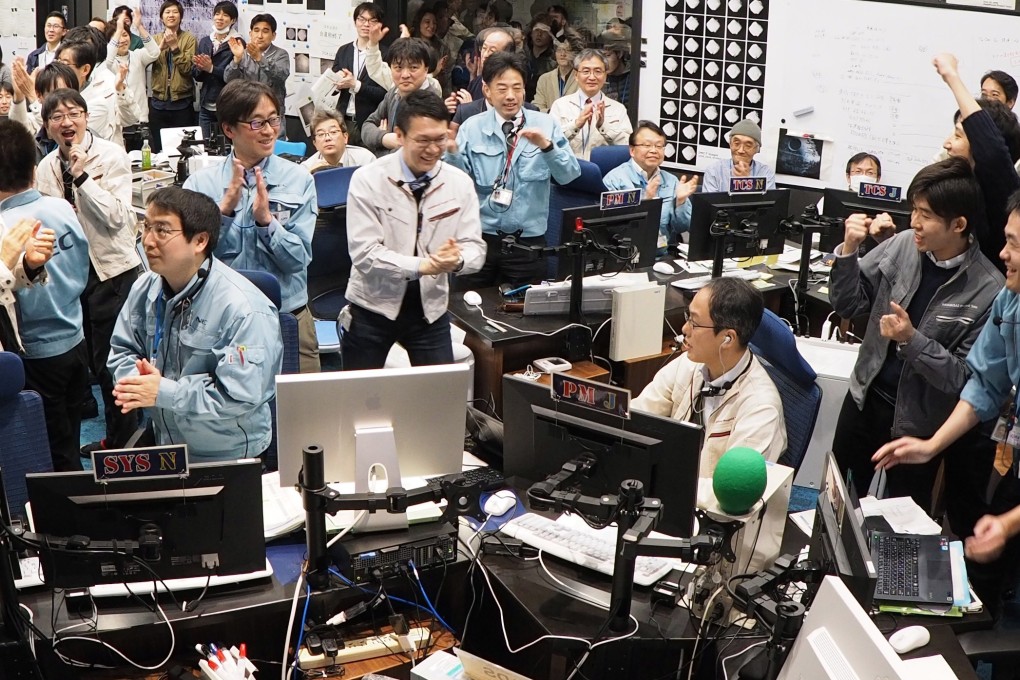Japanese space probe lands on asteroid to collect material from 4.6 billion years ago, possibly shedding light on origin of life
- Scientists hope samples may provide answers to some fundamental questions about the universe

A Japanese probe sent to examine an asteroid 300 million kilometres from the Earth for clues about the origin of life and the solar system landed successfully on Friday, scientists said.
Data from the probe, Hayabusa2, showed changes in speed and direction, indicating it had touched down on the asteroid and was blasting back to its orbiting position, according to officials from the Japan Aerospace Exploration Agency (JAXA).
A live webcast of the control room showed dozens of JAXA staff members nervously monitoring data ahead of the touchdown before exploding into applause after receiving a signal from the probe, Hayabusa2, that it had landed.
“We confirmed the touchdown,” JAXA spokeswoman Chisato Ikuta said.
The probe was due to fire a bullet at the Ryugu asteroid, to stir up surface matter, which the probe will then collect for analysis back on Earth.
The asteroid is thought to contain relatively large amounts of organic matter and water from some 4.6 billion years ago when the solar system was born.